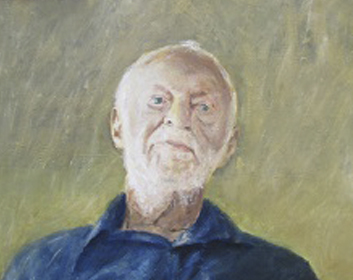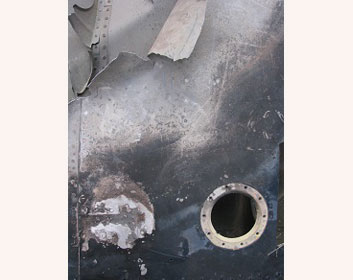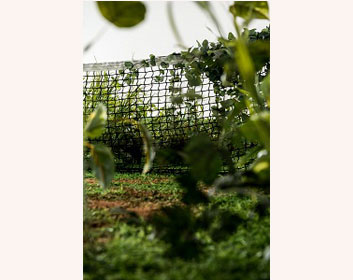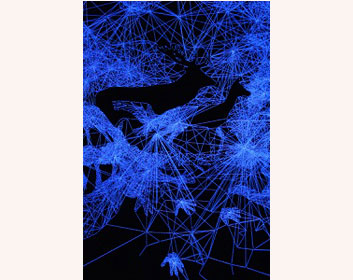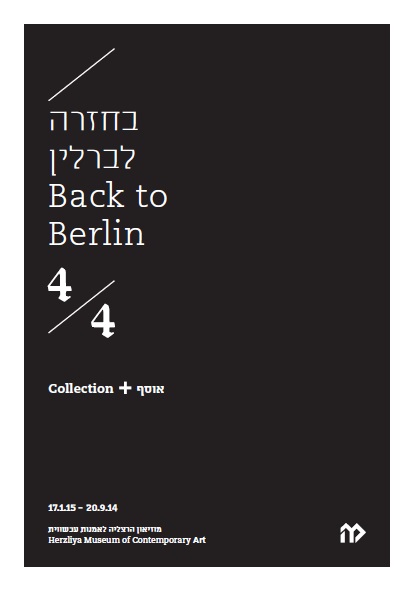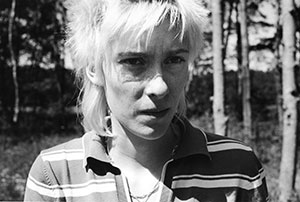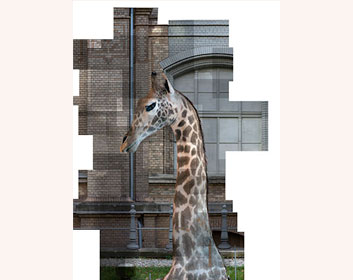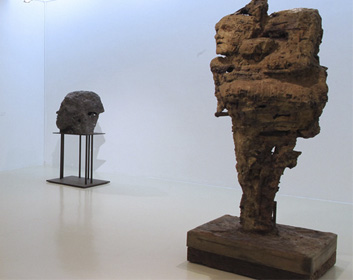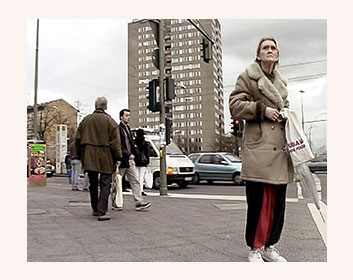-
Jacob Alkow
A group view from the Jacob Alkow collection k1p3 architects Jacob Alkow Collection (1902-1999) Jacob Alkow lived an intriguing life full of upheavals, and art played a prominent role in it. The international eclectic collection is comprised of 43 works of plastic art in a variety of styles and techniques, most from the 20th century, with a minority of works from the 19th century and even earlier. A strong affinity for Judaism is evident from the collection – most of the
read more >> -
Ella Kandel
Collapscension is composed of old airplane fragments collected by Ella Kandel in salvage yards and the Herzliya airport. After gathering the airplane pieces, Kandel produced maquettes and digital models in order to simulate and plan in advance the final appearance of this work, which was designed as a site-specific installation. The airplane debris seems to have crashed into the ceiling during an unsuccessful takeoff. Hence the work’s title, Collapscension – a portmanteau word which
read more >> -
Tal Frank
Tiebreak, a solo exhibition by Tal Frank, draws its inspiration from the paraphernalia of competitive sports while offering an image of an elusive, parallel world. Consisting of three autonomous installations, Tiebreak encompasses a shared iconography that forms a sequence of narrative episodes in between the mundane and the fantastical. A fictive reality, it draws on the realm of sports as a signifier of a contemporary culture of leisure – a repertoire of imagery that
read more >> -
Julien Salaud
The Stellar Cave created by Julien Salaud invites the viewers into a space that encompasses a combination of nature and culture, shamanism, mysticism, and beauty, all of which are in dialogue with body culture in contemporary art. He has created scenes that recall renaissance frescoes and prehistoric wall paintings by interweaving threads, held down by nails, into deer and other local wild animals as well as unearthly beings. These figures seem to have been captured by the web of threads, which
read more >> -
Re-view
Berlin provides fertile ground for art’s coping with the historical burden laid on the shoulders of those who choose to live in this complex city. It is gradually regaining the status denied to it abruptly upon the Nazis’ rise to power, and even moves energetically forward: countless young artists from all over the world have been active in the city ever since its wall was torn down in 1989, turning it into a vibrant cultural center. What, then, is the secret of Berlin’s magic
read more >> -
Erik Schiemann
Over the last twenty years, German-born Erik Schiemann has been systematically photographing in concentration and extermination camps across Europe. In his photographs, Schiemann focuses on portraits and documenting tiny corners in the camps, motivated by the desire to understand and uncover something about the place and the events it has witnessed – something that cannot be unraveled from the general, “big picture”. Sometimes I found in his photos a blooming field in the roll-call
read more >> -
A Circumscribed Sphere
The recent project created by Ilit Azoulay is simultaneously on display at the Herzliya Museum of Contemporary Art in Israel as Implicit Manifestations and at the KW Institute for Contemporary Art in Berlin as Shifting Degrees of Certainty. This project follows upon the artist’s participation in a six-month residency program at KW, which was born of collaboration between the Shpilman Institute of Photography, Schir Foundation, and KW.1 Azoulay’s works include photographs of
read more >> -
Back to Berlin
Berlin provides fertile ground for art’s coping with the historical burden laid on the shoulders of those who choose to live in this complex city. It is gradually regaining the status denied to it abruptly upon the Nazis’ rise to power, and even moves energetically forward: countless young artists from all over the world have been active in the city ever since its wall was torn down in 1989, turning it into a vibrant cultural center. What, then, is the secret of Berlin’s magic
read more >> -
Zvi Lachman
Lachman calls the exhibition verticals, and in so doing he turns our gaze to the bases of his busts. The tension between the clear and rigid geometric bases and the organic heads adds esthetic and substantive dimensions to his statues, and once again requires the viewer to review them from multiple vantage points; indeed, from each angle the proportions between the base and head seem somewhat different. A nostalgic moment immediately followed by formal collision, a harmonious instant straightaway
read more >> -
Mattias Härenstam
Mattias Härenstam, Hundekälte (Nächstes Jahr wirds noch kälter), 2003, single-channel Born in Sweden in 1971, lives and works in Berlin and Oslo The title Cold as a Dog’s Nose (Next year will be even colder) is a quote from Alfred Döblin’s Berlin-Alexanderplatz, published in 1929. As in the novel, the city itself plays an important role in the video, featuring the same proletarian districts of eastcentral Berlin, where Döblin’s antihero Franz Biberkopf roamed
read more >>
